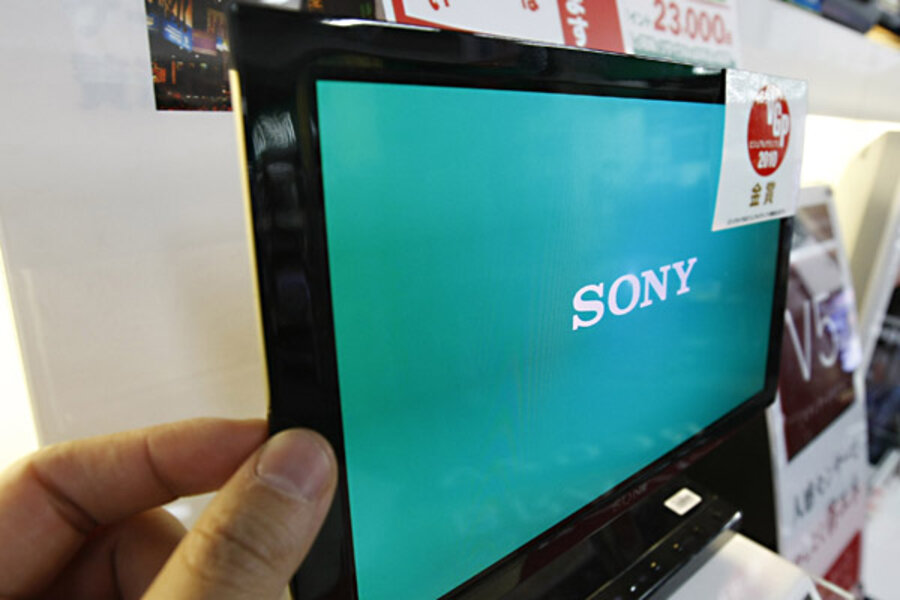No more big TV discounts? Samsung and Sony push to control pricing.
If you were waiting for the next big shopping holiday to get a new TV on the cheap, you may have waited just a little too long.
Samsung and Sony, two of the biggest television manufacturers in the world, have begun to set price minimums on their television sets, according to the Wall Street Journal. The companies began the practice last month in an effort to curb falling prices and protect their profit margins.
The new policy would prevent retailers from advertising or selling the products for lower than the price requested by the manufacturers. The Sony policy also includes camcorders, audio equipment, and some computers. The company already had a minimum pricing policy for PlayStation gaming consoles. The policy isn’t a novel one in the tech industry. Apple, for instance, has long had pricing minimums in place for several of its products, including iPods and, in a move that got the company into hot water with the US government last month, e-books.
Sony and Samsung need not worry, however. Their actions are covered under Leegin Creative Leather Products, Inc. v. PSKS, Inc., a 2007 antitrust ruling that gives companies the right to set minimum prices for products. At the time, the US Supreme Court argued that the ruling would be good for competition among retailers. When it comes to televisions, much of the competition comes from which retailer can slash prices the most on key holiday weekends, most notably Black Friday in late November. But that really only benefits giants like Best Buy, Amazon, and Wal-Mart, which can afford to take losses on such products without making a dent in their bottom line.
The move seems like a precautionary measure for the TV industry, and Sony in particular. The Japanese-owned electronics giant lost $1 billion in the previous fiscal year, due in part to shrinking profit margins on televisions, according to Bloomberg. South Korean-owned Samsung, the world’s top TV maker, fared better, nearly doubling its net profits to $4.5 billion from a year earlier. But TV sales for the company still fell in the first quarter of 2012.
Last year, global TV shipments fell for the first time since 2004, and US imports are projected to drop by about 2 million by the end of this year, according to some industry analysts.
What does this mean for consumers? Deep discounts on those two brands may become a thing of the past, but that doesn’t mean TV deals in general will disappear, unless other companies follow suit. So far, no other manufacturers have implemented the price-floor policy. LG Electronics, the world’s second-largest TV maker behind Samsung, told Bloomberg that it has no price-setting plans.






